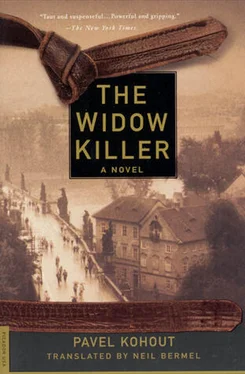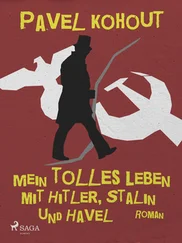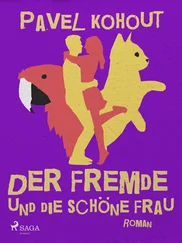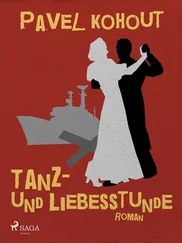What plans did the central office have once the front got here, Brno’s defender of the law asked when he’d briskly gobbled down the Moravian roast (obtained without ration coupons, which was in and of itself a punishable crime). Everyone in Brno was sure — he assured Morava emphatically, so the message would make it to Prague — that the great German Reich would be victorious, but how should they carry on in the short term if for strategic reasons the Führer found it expedient to withdraw the front temporarily past Brno? Were they perhaps counting on the Brno team’s experience to reinforce the Prague police? After all, criminal elements in Prague would be sure to exploit the political confusion.
Morava lost patience with them. They were officers just like their colleagues in Prague, he told them sternly, and he didn’t know anyone there who was as obsessed with what would happen after the war. As long as they maintained public order — which was, after all, their only obligation — and had not engaged in extracurricular political activities of their own accord, they’d have nothing to fear. After all, every regime needs criminal police. Now, if they’d kindly excuse him, he’d had a tough day and tomorrow wouldn’t be any easier; he had to finish up the investigations their subordinates hadn’t completed, so he wanted to get some sleep.
He left them there with their half-empty glasses and looming fears and walked swiftly back to the hotel down dark, deserted streets that he had almost forgotten in his years in Prague. Before he rang for the doorman, he stopped and listened. No, he was not imagining it; a weak but perceptible rumbling rippled through the cold, still air, first weakening, now strengthening and overflowing like the April thunderstorms he remembered over south Moravia.
The front, he realized. They’re that close!
Then his thoughts turned to Jitka, because it was the first time in their three weeks together that he would sleep alone.
The man from the Brno Gestapo assured Buback that he could forget about two of the suspects immediately. If Bruno Thaler’s alibi for 1938 was problematic, he had one for this February fourteenth that was unimpeachable: he was working as a prison guard at the Buchenwald concentration camp and had not taken any days off this year. Alfons Hunyady had left for another unidentified camp three years ago in a transport of Moravian Gypsies, wearing the label Parasite.
Buback had refused Matulka’s dinner invitation primarily because the Czech and his deputy were useless to him. Every word they spoke dripped with proof that they were Nazier than the most fanatical Nazis. In a police uprising, worthless toadies like them would be the first to lose their heads.
He had two surprisingly good whiskeys with his colleague and compatriot in the local German casino and managed an hour of small talk. How funny, he thought, that since… when was it, Stalingrad, or maybe the Allied landing at Normandy, conversations like this had lost all substance. Under certain conditions even a sarcastic remark about the weather could prove dangerous; after all, it could be a gibe at the constant excuses emanating from the armed forces high command. The situation on the fronts was completely taboo.
They exhausted the murder of Baroness von Pommeren, chatted a bit about Moravian wine, which Buback had not drunk since his youth, and called it a night when they caught each other simultaneously yawning. The chief inspector politely refused an escort home, and when he reached the hotel decided to prolong his walk. Against the dark sky the even darker silhouette of a steep knoll rose close by. He decided he could do with a bit of exercise and set off at a brisk clip up the slope.
Soon the metropolis lay at his feet, darkened, unfriendly, and unknown, the second largest city in the land where he was born. Where does a bilingual German from nonexistent Czechoslovakia belong anyway? Especially one from Prague?
The product of a mixed marriage in which his mother prevailed, Erwin Buback had therefore gone to a Czech grammar school in his native Prague. When his mother died, his father, an insurance agent, married a wealthy German woman from Karlsbad. Erwin attended the German gymnasium there and was sent to Dresden to study law. His parents, who had no further children, wanted to strengthen Erwin’s identification with the nationality they shared.
Buback had met Hilde in that wonderful city on the Elbe and stayed until the war broke out. He soon earned his stripes in a field which had never interested him, but which proved reasonably secure in a time of economic and political upheaval. The criminal police, of course, came under Nazi supervision in time, but at least the Nazis understood that to have a dependable judicial and corrective system they had to let some professionals remain at their posts.
That did not mean that the detectives resisted the Nazis, far from it. Buback felt admiration for the verve with which they quickly returned order to a shattered Germany. He too welcomed the Führer as the re-newer of German honor, which the Versailles dictates had trampled. His loyalty, though, was a far cry from the fanaticism in other branches of the Reich’s government. He was a German, and that was that.
Buback, his young wife, her parents, and their acquaintances applauded enthusiastically when the Führer resolved to return misappropriated territories to a resurrected Germany. They wholeheartedly welcomed the annexation of Austria in 1938. Erwin was greatly pleased when Bohemia returned to Greater Germany’s embrace. He experienced a heady Night of Torches in liberated Karlsbad, and tears sprang to his eyes when the banner of new Germany waved over his native Prague as well. He and his colleagues celebrated the lightning victories in Poland and the west.
While at first the newly formed security detachments repelled him with their ostentatious brutality, he came to see his office’s connection to them as a necessary evil, an unavoidable consolidation of forces in a nation at war. Sent to France, Holland, and Belgium to ensure the peaceful coexistence of his kinsmen in occupied territories, he devoted his energies, as before, to that task and no other. Some things he saw shocked him others he observed with disapproval; but he felt a direct personal responsibility for all of it.
It was a Sunday in June of 1941, the day Germany attacked the Soviet Union, when he first began to feel uneasy. When he asked Hilde why she wasn’t joining the domestic festivities, she brought Heidi’s geography textbook and opened it to the map of Europe and Asia. The speck that was Germany butted up against the gigantic expanse of Russia. He controlled his irritation and chided her mildly: she should have stuck to pastries instead of teaching if she couldn’t recognize cartographic distortions and, more important, if she couldn’t understand that territory was not the only factor involved.
After that the war only permitted him the occasional visit home, when he would drink in as much of Hilde and Heidi’s presence as he could. Understandably they kept to personal topics, but he noticed that his wife avoided everything political to the point of awkwardness. Once, however, she slipped, and it led to the one bitter argument of their life together.
On a walk through the Franconian vineyards just one year ago, he had been trying to explain an idea he had just had to Hilde. In retrospect, he had probably been attempting to convince himself more than her. By retreating on all fronts, he had claimed, the Führer was coiling his people into a spring that would then fling the Allies into the Atlantic, the Arctic, and the Mediterranean Sea and across the Urals. Then Hilde unexpectedly asked him if the Führer hadn’t lost touch with “his people” long ago.
Читать дальше












